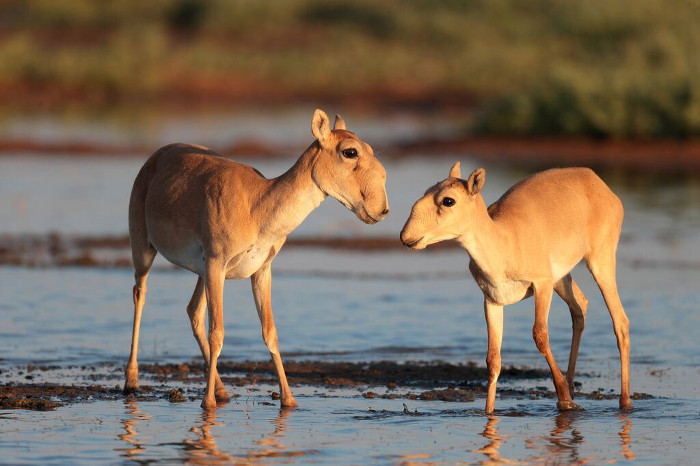
DEVELOPMENT OF THE ARAL REGION WILD ANIMALS ADAPTATION
Project objectives: To preserve and restore populations of rare wild hoofed animals and those listed in the Red Data Book of Kazakhstan (saiga, gazelle, kulan, Przewalski horse) by breeding under semi-free conditions followed by reintroduction into the wild.
Objectives of the project:
- Develop a concept for managing the population of wild hoofed animals in the Northern Aral Region;
- To substantiate the functional and ecological habitats of animals in conditions close to natural;
- Develop an infrastructure for the maintenance and reproduction of a population of wild hoofed animals (saiga, gazelle, kulan, Przhivalsky horse);
- To develop and substantiate the spatial and social structure of aviary upkeep of wild hoofed animals;
- Give a comprehensive assessment of the feeding and watering base of the nursery;
- To develop recommendations on bringing the size of the saiga population in the nursery to the production level
Expected results of the project:
- Technologies will be developed for keeping and breeding saiga and other endangered hoofed animals in semi-free conditions.
- A reserve saiga livestock will be created for:
- preservation of the gene pool of the species in a critical situation;
- reintroduction to other areas to restore dying populations;
- transfer to other nurseries, zoos, etc.
- The feed capacity of pastures and the optimal level of animal number for the Northern Aral region will be determined;
- Biotechnical measures will be carried out to improve the habitats of animals (creation of watering places, sowing of forage grasses, planting shrubs, etc.);
- An assessment will be made of the possibility of coexistence of other rare animals with saiga (kulan, gazelle, Przewalski horse), taking into account the forage capacity of the land;
- The possibility of restoring the historic range of endangered species and subspecies of hoofed animals will be tested;
- Schools will be held on awareness of the population and involvement of local residents in the activities of the “Center”;
- The use of the “Aral region center …” as a basis for scientific research, monitoring, experiments, environmental education, student practice, etc.
The cost of the project: 945 million tenge ($ 3 million)
Terms of the project implementation: the first stage 2017-2020. the second stage 2021 – 2025

